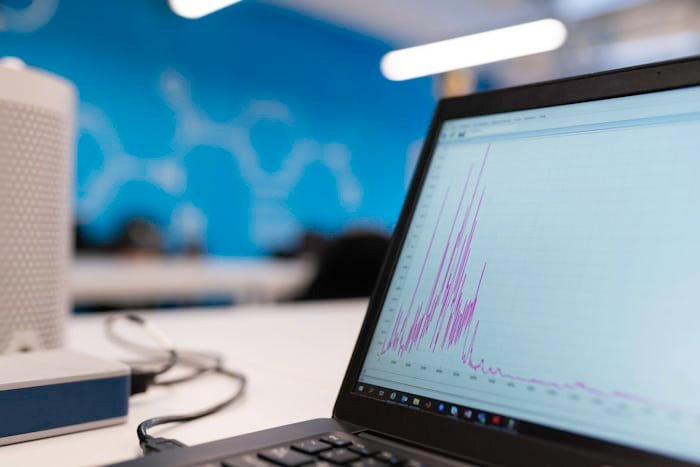In today’s interconnected digital landscape, data security is a top concern for businesses of all sizes. ERP security is the first step to avoiding a devastating impact on your organization. The fundamental purpose of an ERP system is to collect all business data from various departments into one application to manage business processes better. In this article, we will explore the significance of ERP security. Bista Solutions is the world’s leading ERP company and Odoo ERP Gold Partner dedicated to finding zero-day vulnerabilities in ERP applications. Decades of threat research experience help deliver impactful security insights and threat intelligence focused on applications from Odoo, NetSuite, and SaaS providers.
ERP Data Security
ERP applications like SAP, Odoo, Oracle NetSuite, Microsoft Dynamics, etc., are vital to run critical business/operations. From HR to supply chain to finance, these ERP applications ensure efficient business operations by streamlining processes and helps businesses run large-scale operations. Securing access to ERP applications and safeguarding the data stored within them is a crucial part of your overall data security strategy.
Types Of ERP Data
The major types of data that are stored in ERP applications include:
- Sales Data
- HR Data
- Customer PII
- Engineering Information
- Intellectual Property
- Financial Data
Elements of ERP Security
- Infrastructure security
- Network security
- Operating system security
- Database security
Best Practices for ERP Security Testing
Develop a Testing Strategy: Define the scope, objectives, and testing methodologies for your ERP security testing.
Utilize Testing Tools: Leverage specialized security testing tools and technologies designed for ERP systems. These tools can automate the testing process, detect vulnerabilities, and provide actionable insights for remediation.
Engage Security Experts: Consider partnering with experienced security professionals who specialize in ERP security testing. Their expertise and knowledge can help identify and address complex security issues effectively.
Remediate Vulnerabilities: Once vulnerabilities are identified, prioritize and remediate them promptly. Patch vulnerabilities, strengthen access controls, and implement security best practices to mitigate risks and improve your ERP system’s overall security posture.
Regularly Repeat Testing: ERP security testing should be an ongoing process to ensure the continuous protection of your data. Regularly repeat security tests to address new vulnerabilities and adapt to evolving security threats.
Best Practices to Protect Your ERP Data
Implement Robust Access Management: This method effectively mitigates the potential harm inflicted by insider threats and external attackers.
Follow Secure Configuration Methods: Guidelines and recommendations provided by ERP vendors and partners are valuable resources for properly configuring your systems.
Conduct Routine Security Audits: Regular ERP security audits involve thorough evaluations of your system’s security measures, policies, and controls to pinpoint potential vulnerabilities and weaknesses.
Build A Resilient Network Architecture
Through careful design and consistent maintenance of a secure network architecture, you can establish resilient barriers against cyber threats.
Enforce Multi-Factor Authentication: Multi-factor authentication goes beyond the conventional username and password combination, introducing an additional layer of protection. With multi-factor authentication, users are required to present multiple forms of identification before gaining entry to the ERP system.
Perform Regular Software Patches and Updates: Software vendors release security patches and updates consistently to address newly identified vulnerabilities and weaknesses. Proactive engagement in patching and updating strengthens the resilience of your ERP data, providing a robust defense against emerging threats.
Maintain Ongoing Data Monitoring and Log Auditing: Regular assessments allow security professionals to quickly spot unusual activity, fraudulent attempts at access, or possible security breaches as they happen.
Establish Routine Data Backup Procedures: To ensure that critical data remains accessible in the case of hardware failure, human mistake, or security breach, it is recommended to do regular data backups. These backups create duplicate copies of the data.
Establish a Comprehensive Disaster Recovery Strategy: This plan should include step-by-step instructions for data backup and recovery, define the roles and responsibilities of key personnel throughout the recovery process, and outline specific protocols for communication and coordination.
Implement Effective Employee Offboarding Protocols: It is critical to immediately deactivate an employee’s access to any data repositories, including the enterprise resource planning (ERP) system, if they depart from your organization, whether voluntarily or involuntarily. Your organization’s HR and IT departments should work together closely to ensure that access credentials are revoked promptly.
Secure Your ERP Data With Bista Solutions
Protecting data stored and accessed through ERP applications requires a robust technology framework that enables you to deploy internal controls and continuously monitor their efficiency. With the added burden of compliance regulations, it is important to choose solutions that can ease audit compliance in tandem with your overall ERP data security.
Bista Solutions is an Odoo ERP Gold Partner, that provides a comprehensive security platform for managing user access to data, preventing compliance policy violations, limiting exposure of sensitive data, and detecting & responding to threats.
With Bista Solutions’ monitoring and logging capabilities, enterprises can also proactively mitigate ERP risks and analyze user activity to detect threats and prevent breaches.
